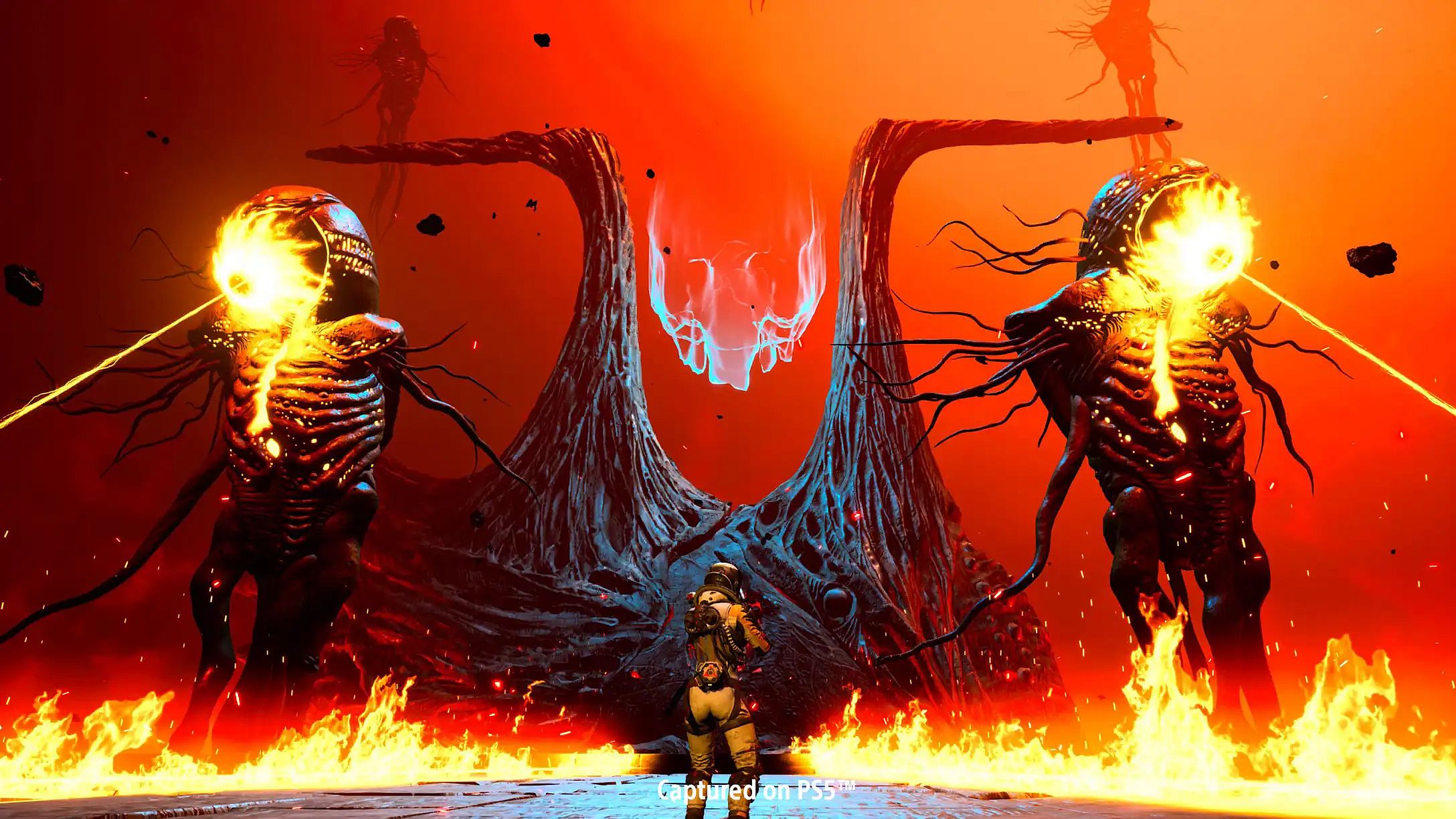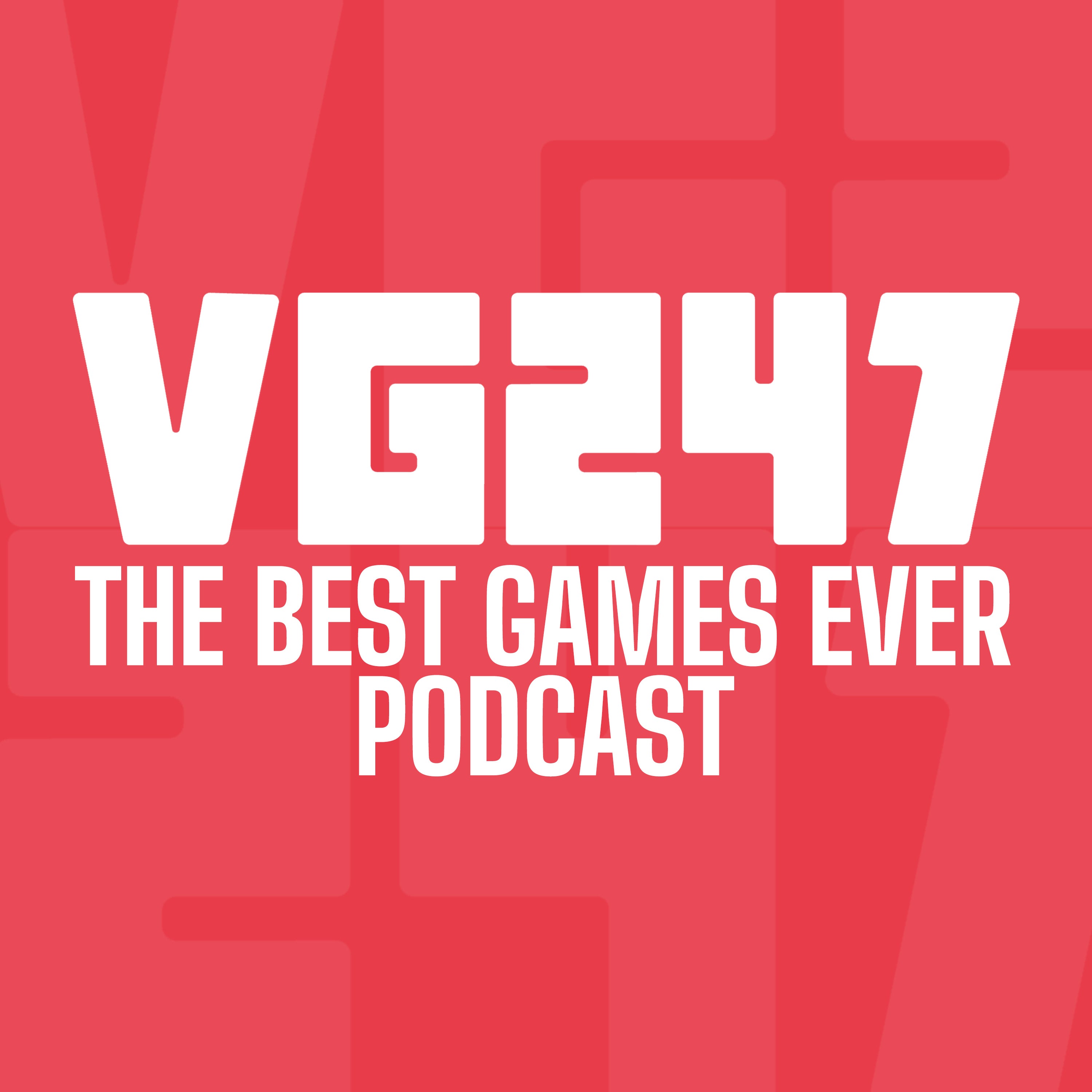The longest I’ve spent with my PS5 since I bought it wasn’t playing Demon’s Souls, Spider-Man, Ratchet & Clank, or any of the bigger games that might immediately come to mind, it was with Housemarque’s Returnal. I loved it so much, it ended up being my game of the year last year. It’s the best PS5 game.
There’s a lot one could say about Returnal. Its narrative of living with regret and processing trauma presented through a sci-fi allegory of death and rebirth captivated me – not just in how well it was married to the game’s rogue-like nature of dying and restarting from the beginning, but because it never fully showed its hand. Even today, you’ll find most of those who played it divided on what’s actually going on in the story; which part is real sci-fi and which is the prison of the mind.
Though Housemarque may have found a perfect narrative excuse for a rogue-like, it’s how the studio managed to distil its knowledge with arcade games – typically played from an overhead perspective – into a third-person shooter without sacrificing the core of what makes its games satisfying to play.
Housemarque games have always been mechanically demanding. The Finnish developer spent years crafting home console inheritors to the tough arcade games that sucked so many coins out of our pockets. I’ve loved almost all of its games, but I can’t claim that they were always surprising.
The idea that this team has moved over to the big-boy, behind-the-back third-person shooter genre was, however, surprising. I knew I could expect greatness, but I didn’t count on just how much of the DNA that defined the studio’s earlier work can be translated to this new horizon. It’s sort of like how myself and many others feared FromSoftware’s desire to go open world with Elden Ring could dilute some (or much) of what made the studio’s trademark tight gameplay design what it is.
In many ways, I see Returnal as sci-fi Souls. It’s a reductive description, sure, but despite its mixed rogue-like and arcade roots, there’s a lot in the game that takes after the work of my favourite developer. This is a story that you’ll have to piece together with each consecutive run. Even by the very end, your interpretation of the events could very well differ from mine.
As challenging as it is, Returnal’s combat is refined and precise; requiring your full attention if you intend to survive for the entirety of the run. Its bosses are each a spectacle, rivalling FromSoft’s best. Pacing is similar, too, with clear breaks in the action and a power curve that, while left to the whims of RNG at times, is often satisfying to navigate as your arsenal and suit abilities grow.
I love Returnal for allowing me to truly be engaged by a rogue-like. I’ve played and liked many of those, but I could never really sink my teeth into any of them the way I wanted to. I’m easily worn down, and the rogue-like cycle often guarantees I’ll get there quickly.
Over the course of the two-ish weeks I spent playing Returnal, I couldn’t think of any other game – even at the height of my frustration with it. The ascent through its biomes lingers in my memory. At the risk of spoiling some of those moments, I’m just going to say that if you reach them, they will haunt you for a time.
When I played Returnal on PS5, I stopped just short of one collectible to unlock the “real” ending. When the game comes to PC, and it looks like that might happen soon, I want to jump into its hell again with mouse and keyboard.

